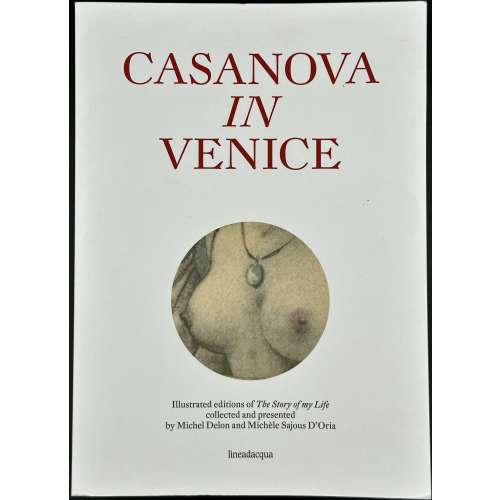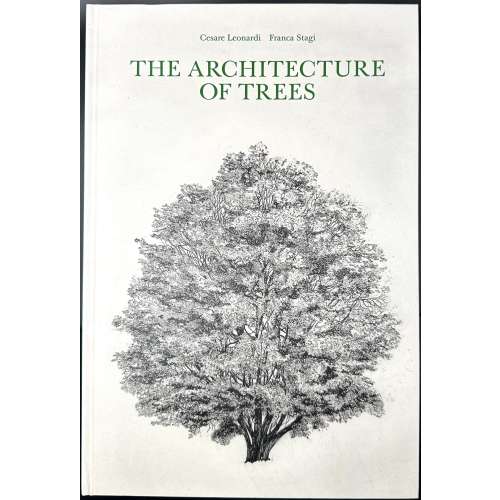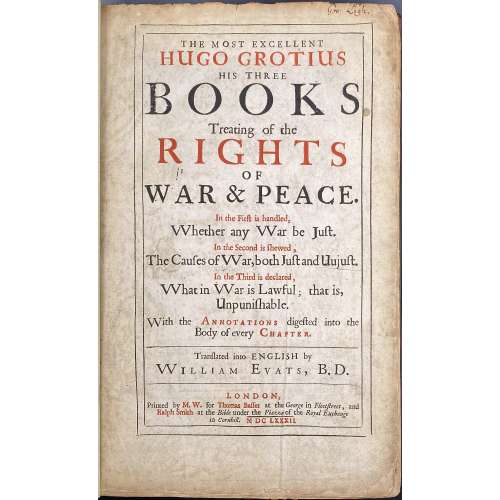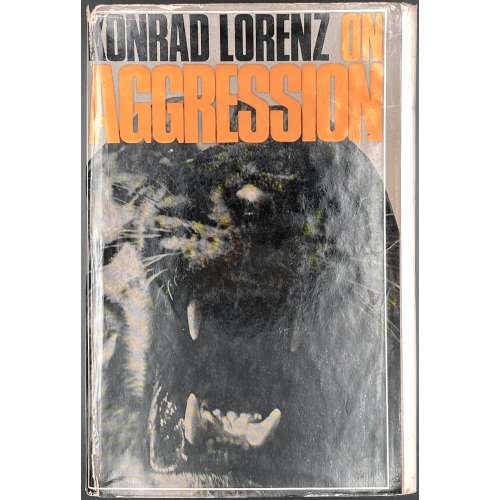Volume collated 4to, 32.5 x 21 cm, later full calf, blind-tooled boards, sunned, raised bands and gilt lettering to spine. bound without the additional engraved title-page sometimes present; title printed in black and red, woodcut headpieces and initials; a little foxing (mostly marginal) throughout, title lightly dust stained with slight chipping at extremities, minor marginal worming to early leaves (b
3-I
4), paper flaw to outer margin of E
1; contemporary English ownership inscription of George Legh to the title, a handful of manuscript corrections to text and annotations to index.
Title-page (double frame, red and black, tall ‘s’): THE MOST EXCELLENT |
HUGO GROTIUS | HIS THREE |
BOOKS | Treating of the |
RIGHTS | OF |
WAR & PEACE. |
In the First is handled, | Whether any War be Just. |
In the Second is shewed , | The Causes of War, both Just and Uujust (sic). |
In the Third is declared , | What in War is Lawful ; that is, | Unpunishable. | With the
Annotations digested into the | Body of every
Chapter. | — | Translated into ENGLISH by | William Evats, B. D. | — |
LONDON, | Printed by
M. W. for
Thomas Basset at the
George in
Fleetstreet, and |
Ralph Smith at the
Bible unde
r the Piazza of the
Royal Exchange | in
Cornhill.
M DC LXXXII. ||
Collation: A
4 a-b
4 c
3 B-Z
4 2A-2D
4 2E
6 3A-3Z
4 4A-4D
4 4E-4L
2; total 247 leaves as
called for; lacking engraved title-page.
Pagination: [4] i-xxi [5] 1-220 (text continuous) 361-572 [573] [574 blank] [30 table]; total 494 pages.
Seller’s note: First edition of the first complete English translation, following Barksdale’s abridgement, of Grotius’s landmark work of political philosophy, the first treatise on international law. First published in Latin in 1625, Grotius’s
De iure belli ac pacis “became the basic manual for both the theoretical justification and the entire practice of the international law of war as well as of international law in general for the whole period of the ancien régime in Europe” [Duchhardt, p. 288]. “It would be hard to imagine any work more central to the intellectual world of the Enlightenment … [By] the time of the post-First World War settlement, Grotius was regarded almost exclusively as the founder of modern civilized interstate relations, and as a suitable tutelary presence for the new Peace Palace at The Hague … [In] some ways that was to radically misunderstand Grotius’s views on war; he was in fact much more of an apologist for aggression and violence than many of his more genuinely innovative qualities of his moral theory, qualities that entitle him to an essential place in the history of political theory …” [Tuck, pp. xi-xii].
Contributors:
Hugo Grotius (Dutch, 1583 – 1645) – author.
William Evats (British, c.1606 – 1677) – translator.
Margaret White (British, fl. 1678 – 1683) – printer.
Thomas Bassett (British, fl. c. 1659 – 1693) – publisher/bookseller.
Ralph Smith (British, fl. 1642 – 1684) – publisher/bookseller.
 NEWSoftcover, 210 x 149 mm, white wrappers with red and black lettering and a vignette to front, red and black lettering to spine and black lettering to back; pp. [1-8] 9-143 [1]. ISBN 978-88-95598-98-7. Title-page (red and black): CASANOVA | IN | VENICE | Illustrated editions of The story of my life | collected and presented | by Michel Delon and Michèl Sajous D’Oria | lineadacqua || Colophon: Printed in Venice, Italy | In may 2019 | By Grafiche Veneziane, Venice || Back wrapper: 100 illustrations enrich | Casanova's own telling | of his adventures in Venice || First edition in French: April 2013 First edition in English: March 2019 Contributors: Michel Delon (French, b. 1947) – author Michèl Sajous D’Oria – author Lucian Comoy – translator Contents: A WORLD OFIMAGES – Michel Delon OF PLACES AND BOOKS – Michèle Sajous D'Oria PORTRAITS AND ALLEGORIES NANETTE AND MARTON VEDUTE C.C. A LETTER M.M. RENDEZ-VOUS AND AMBUSH THE CASINO AT THE OPERA AND THE RIDOTTO A MASKED BALL AT THE CONVENT THE QUADRILLE COMPARISON MELANCHOLY TONINE AND BARBERINE MASKS ARREST THE PIOMBI ADIEU VENICE Bibliography of the illustrated editions Notes concerning the illustrators
NEWSoftcover, 210 x 149 mm, white wrappers with red and black lettering and a vignette to front, red and black lettering to spine and black lettering to back; pp. [1-8] 9-143 [1]. ISBN 978-88-95598-98-7. Title-page (red and black): CASANOVA | IN | VENICE | Illustrated editions of The story of my life | collected and presented | by Michel Delon and Michèl Sajous D’Oria | lineadacqua || Colophon: Printed in Venice, Italy | In may 2019 | By Grafiche Veneziane, Venice || Back wrapper: 100 illustrations enrich | Casanova's own telling | of his adventures in Venice || First edition in French: April 2013 First edition in English: March 2019 Contributors: Michel Delon (French, b. 1947) – author Michèl Sajous D’Oria – author Lucian Comoy – translator Contents: A WORLD OFIMAGES – Michel Delon OF PLACES AND BOOKS – Michèle Sajous D'Oria PORTRAITS AND ALLEGORIES NANETTE AND MARTON VEDUTE C.C. A LETTER M.M. RENDEZ-VOUS AND AMBUSH THE CASINO AT THE OPERA AND THE RIDOTTO A MASKED BALL AT THE CONVENT THE QUADRILLE COMPARISON MELANCHOLY TONINE AND BARBERINE MASKS ARREST THE PIOMBI ADIEU VENICE Bibliography of the illustrated editions Notes concerning the illustrators Hardcover volume, 38.3 x 26 x 3.8 cm, pictorial boards, lettering to front cover and spine, pp.: [1-6] 7-421 [3], ils. Title-page: Cesare Leonardi Franca Stagi | THE ARCHITECTURE | OF TREES | Introduction to the new edition | ANDREA CAVANI, GIULIO ORSINI | Translated from the Italian by | NATALIE DANFORD | Princeton Architectural Press | New York || Cesare Leonardi (Italian, 1935 – 2021) Franca Stagi (Italian, 1937 – 2008) Natalie Danford (American, b. 1968)
Hardcover volume, 38.3 x 26 x 3.8 cm, pictorial boards, lettering to front cover and spine, pp.: [1-6] 7-421 [3], ils. Title-page: Cesare Leonardi Franca Stagi | THE ARCHITECTURE | OF TREES | Introduction to the new edition | ANDREA CAVANI, GIULIO ORSINI | Translated from the Italian by | NATALIE DANFORD | Princeton Architectural Press | New York || Cesare Leonardi (Italian, 1935 – 2021) Franca Stagi (Italian, 1937 – 2008) Natalie Danford (American, b. 1968) Volume collated 4to, 32.5 x 21 cm, later full calf, blind-tooled boards, sunned, raised bands and gilt lettering to spine. bound without the additional engraved title-page sometimes present; title printed in black and red, woodcut headpieces and initials; a little foxing (mostly marginal) throughout, title lightly dust stained with slight chipping at extremities, minor marginal worming to early leaves (b3-I4), paper flaw to outer margin of E1; contemporary English ownership inscription of George Legh to the title, a handful of manuscript corrections to text and annotations to index. Title-page (double frame, red and black, tall ‘s’): THE MOST EXCELLENT | HUGO GROTIUS | HIS THREE | BOOKS | Treating of the | RIGHTS | OF | WAR & PEACE. | In the First is handled, | Whether any War be Just. | In the Second is shewed , | The Causes of War, both Just and Uujust (sic). | In the Third is declared , | What in War is Lawful ; that is, | Unpunishable. | With the Annotations digested into the | Body of every Chapter. | — | Translated into ENGLISH by | William Evats, B. D. | — | LONDON, | Printed by M. W. for Thomas Basset at the George in Fleetstreet, and | Ralph Smith at the Bible under the Piazza of the Royal Exchange | in Cornhill. M DC LXXXII. || Collation: A4 a-b4 c3 B-Z4 2A-2D4 2E6 3A-3Z4 4A-4D4 4E-4L2; total 247 leaves as called for; lacking engraved title-page. Pagination: [4] i-xxi [5] 1-220 (text continuous) 361-572 [573] [574 blank] [30 table]; total 494 pages. Seller’s note: First edition of the first complete English translation, following Barksdale’s abridgement, of Grotius’s landmark work of political philosophy, the first treatise on international law. First published in Latin in 1625, Grotius’s De iure belli ac pacis “became the basic manual for both the theoretical justification and the entire practice of the international law of war as well as of international law in general for the whole period of the ancien régime in Europe” [Duchhardt, p. 288]. “It would be hard to imagine any work more central to the intellectual world of the Enlightenment … [By] the time of the post-First World War settlement, Grotius was regarded almost exclusively as the founder of modern civilized interstate relations, and as a suitable tutelary presence for the new Peace Palace at The Hague … [In] some ways that was to radically misunderstand Grotius’s views on war; he was in fact much more of an apologist for aggression and violence than many of his more genuinely innovative qualities of his moral theory, qualities that entitle him to an essential place in the history of political theory …” [Tuck, pp. xi-xii]. Contributors: Hugo Grotius (Dutch, 1583 – 1645) – author. William Evats (British, c.1606 – 1677) – translator. Margaret White (British, fl. 1678 – 1683) – printer. Thomas Bassett (British, fl. c. 1659 – 1693) – publisher/bookseller. Ralph Smith (British, fl. 1642 – 1684) – publisher/bookseller.
Volume collated 4to, 32.5 x 21 cm, later full calf, blind-tooled boards, sunned, raised bands and gilt lettering to spine. bound without the additional engraved title-page sometimes present; title printed in black and red, woodcut headpieces and initials; a little foxing (mostly marginal) throughout, title lightly dust stained with slight chipping at extremities, minor marginal worming to early leaves (b3-I4), paper flaw to outer margin of E1; contemporary English ownership inscription of George Legh to the title, a handful of manuscript corrections to text and annotations to index. Title-page (double frame, red and black, tall ‘s’): THE MOST EXCELLENT | HUGO GROTIUS | HIS THREE | BOOKS | Treating of the | RIGHTS | OF | WAR & PEACE. | In the First is handled, | Whether any War be Just. | In the Second is shewed , | The Causes of War, both Just and Uujust (sic). | In the Third is declared , | What in War is Lawful ; that is, | Unpunishable. | With the Annotations digested into the | Body of every Chapter. | — | Translated into ENGLISH by | William Evats, B. D. | — | LONDON, | Printed by M. W. for Thomas Basset at the George in Fleetstreet, and | Ralph Smith at the Bible under the Piazza of the Royal Exchange | in Cornhill. M DC LXXXII. || Collation: A4 a-b4 c3 B-Z4 2A-2D4 2E6 3A-3Z4 4A-4D4 4E-4L2; total 247 leaves as called for; lacking engraved title-page. Pagination: [4] i-xxi [5] 1-220 (text continuous) 361-572 [573] [574 blank] [30 table]; total 494 pages. Seller’s note: First edition of the first complete English translation, following Barksdale’s abridgement, of Grotius’s landmark work of political philosophy, the first treatise on international law. First published in Latin in 1625, Grotius’s De iure belli ac pacis “became the basic manual for both the theoretical justification and the entire practice of the international law of war as well as of international law in general for the whole period of the ancien régime in Europe” [Duchhardt, p. 288]. “It would be hard to imagine any work more central to the intellectual world of the Enlightenment … [By] the time of the post-First World War settlement, Grotius was regarded almost exclusively as the founder of modern civilized interstate relations, and as a suitable tutelary presence for the new Peace Palace at The Hague … [In] some ways that was to radically misunderstand Grotius’s views on war; he was in fact much more of an apologist for aggression and violence than many of his more genuinely innovative qualities of his moral theory, qualities that entitle him to an essential place in the history of political theory …” [Tuck, pp. xi-xii]. Contributors: Hugo Grotius (Dutch, 1583 – 1645) – author. William Evats (British, c.1606 – 1677) – translator. Margaret White (British, fl. 1678 – 1683) – printer. Thomas Bassett (British, fl. c. 1659 – 1693) – publisher/bookseller. Ralph Smith (British, fl. 1642 – 1684) – publisher/bookseller. Description: One volume, 8vo, 22 x 14.5 cm, in brown paper boards with orange and black lettering to spine, pictorial dust jacket, unclipped “PRICE | 30s net | IN U.K. ONLY”, collated [A]-S8, pp.: [i-vi] vii-xiii [xiv blank], 1-273 [274 blank], 144 leaves total. Edition: 1st English edition. Original title: Das Sogenannte Böse: zur Naturgeschichte der Aggression. — Wien : Dr. G. Borotha-Schoeler, 1963. Contributors: Konrad Zacharias Lorenz (Austrian, 1903 – 1989) – author. Sir Julian Sorell Huxley (British, 1887 – 1975) – author of the foreword. Marjorie Latzke [Kerr Wilson] (American, 20th century) – translator from German. Methuen & Co Ltd. (London) – publisher. Cox & Wyman Ltd. (Fakenham, Norfolk) – printer.
Description: One volume, 8vo, 22 x 14.5 cm, in brown paper boards with orange and black lettering to spine, pictorial dust jacket, unclipped “PRICE | 30s net | IN U.K. ONLY”, collated [A]-S8, pp.: [i-vi] vii-xiii [xiv blank], 1-273 [274 blank], 144 leaves total. Edition: 1st English edition. Original title: Das Sogenannte Böse: zur Naturgeschichte der Aggression. — Wien : Dr. G. Borotha-Schoeler, 1963. Contributors: Konrad Zacharias Lorenz (Austrian, 1903 – 1989) – author. Sir Julian Sorell Huxley (British, 1887 – 1975) – author of the foreword. Marjorie Latzke [Kerr Wilson] (American, 20th century) – translator from German. Methuen & Co Ltd. (London) – publisher. Cox & Wyman Ltd. (Fakenham, Norfolk) – printer.

